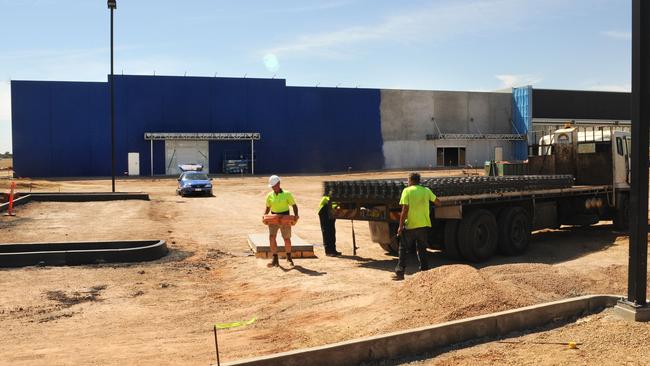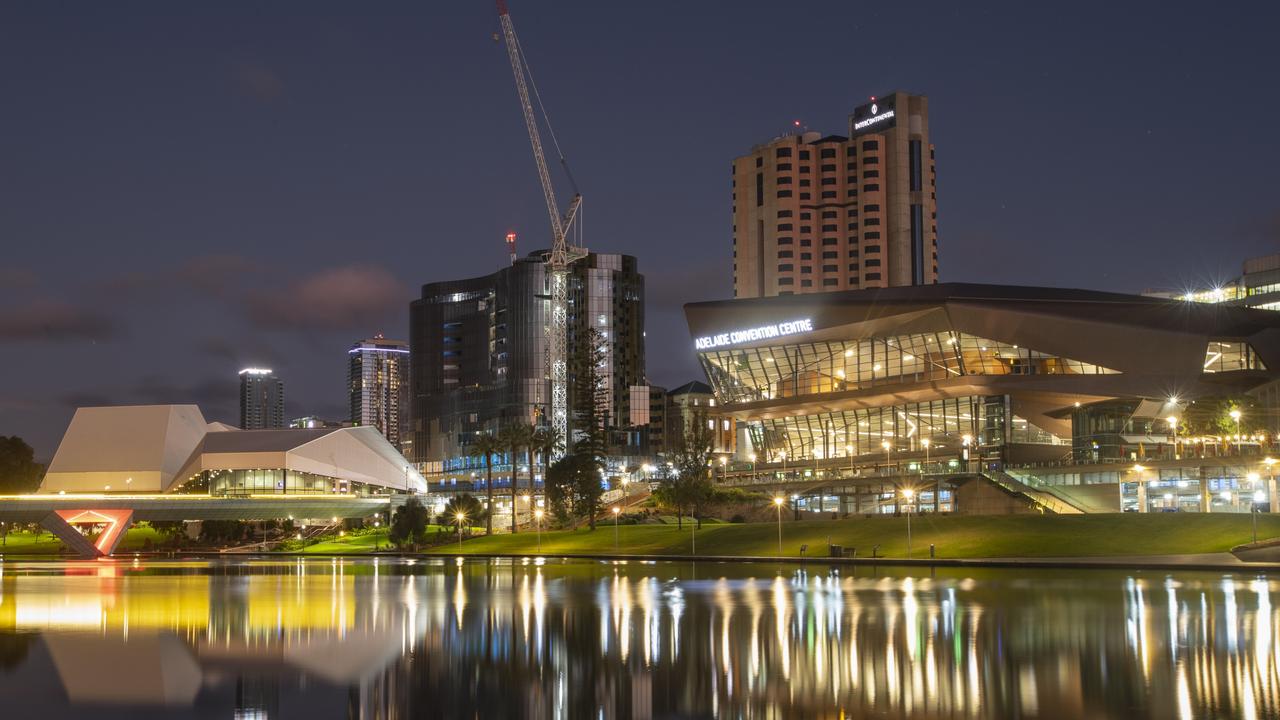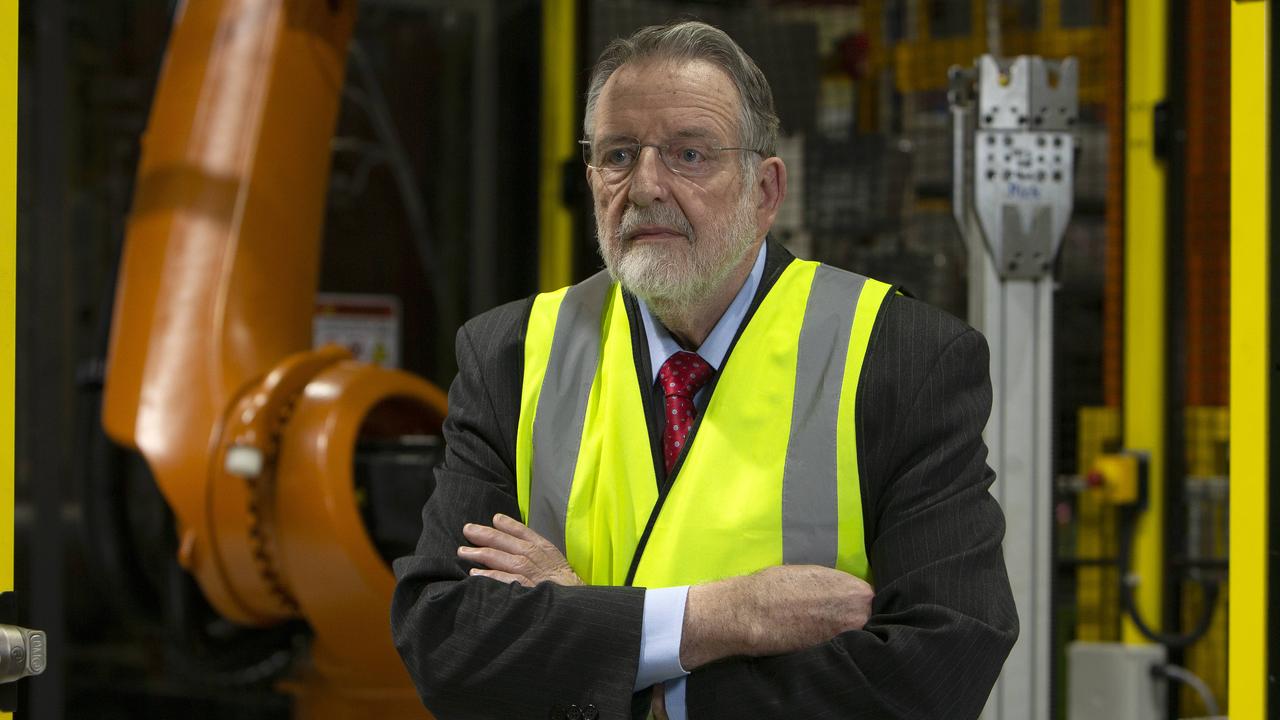Woolies pulls the plug on Masters
WOOLWORTHS has backed out of plans to create an additional near-300 jobs in South Australia, saying its under-construction Masters outlets at Noarlunga and Parafield will not be opened.
SA Business
Don't miss out on the headlines from SA Business. Followed categories will be added to My News.
- ANALYSIS: Why Masters’ death is a disaster for you
- CUSTOMERS’ WORDS: The indisputable reason Masters failed
WOOLWORTHS has backed out of plans to create an additional near-300 jobs in South Australia, saying its under-construction Masters outlets at Noarlunga and Parafield will not be opened.
The retail giant is now looking to either sell or wind up its home improvement business, which includes Masters, Home Timber & Hardware and Thrifty-Link, after sustaining heavy losses.
“Masters is committed to doing the right thing by our landlords and developers and we will be dealing with sites where construction is planned or under way on a case-by-case basis,” a spokeswoman told The Advertiser.
“These stores — Noarlunga and Parafield — will not open.”
The decision to finally pull the plug on its failed Masters experiment nationally has placed the fate of more than 7000 employees at 63 stores in limbo.
This includes hundreds of workers at the Masters outlets at Mount Gambier and near the Adelaide Airport (next to the Ikea store).
Shop assistants union secretary Sonia Romeo said up to 200 current SA workers could be affected.
“They’re sort of devastated by the news and feeling uncertain about what is going to happen to them and their employment,” she said.
Hardware Association of SA president Paul Stewart said 36 independently owned Thrifty-Link Hardware stores in South Australia — which also fall under the Home umbrella — would also be affected.
“They are going to have to choose how they trade ... they may choose to go on their own, they may choose the Thrifty-Link banner, they may choose to rebrand to Mitre 10 or True Value,” he said.
“But a lot of what happens depends on who’s going to buy them.
“I don’t believe there will be any major negative impact to the independent stores.”
A13,508sqm Masters Home Improvement outlet was due to open mid year as part of the Noarlunga Centre complex upgrade and another 13,500sq m Masters Parafield Airport store was due to open in May.

The State Government, which praised the jobs growth during a sod turning ceremony at Parafield in June, said it was hopeful existing employees would be re-employed in other parts of the Woolworths business if the group could not sell it.
Onkaparinga Council mayor Lorraine Rosenberg said news about the proposed Noarlunga outlet was “obviously disappointing”.
“We will now work with key stakeholders including Vicinity Centres (Colonnades owner), and provide support where possible to attract another business to lease the Masters site, thereby ensuring that jobs can still be provided,” she said.
Salisbury Council did not respond at the time of publishing.
Woolworths chairman Gordon Cairns said the retailer’s recent review of the business indicated it would take many years for Masters to become profitable.
“We have determined we cannot continue to sustain ongoing losses from this business,” he said.
“Our top priority is to do the right thing by shareholders, staff, suppliers and customers and we will act quickly and openly to minimise the impact of this decision.”
“As a result of our engagement with Lowe’s, it has advised that it intends to exercise the put option which is available to it under the joint venture agreement,” Mr Cairns said.
The entire process is expected to take several months, with the business to continue trading in this period. “Our top priority is to do the right thing by shareholders, staff, suppliers and customers and we will act quickly and openly to minimise the impact of this decision,” he said.
Masters has racked up losses or more than $700 million since 2011, causing a significant drag on the overall profitability of the Woolworths group.
Mr Cairns said the decision will allow the company to focus on strengthening its core businesses, including its supermarket chain which is battling competition from rivals Coles and Aldi.
Retail analyst Geoff Dart told news.com.au in October the part of the problem was Woolworths had severely miscalculated the store design.
With an average size per store of 13,500sqm and sales of about $19 million, Mr Dart estimated Masters would need to lift sales to $28 million per store simply to cover operating costs.
“The significant start-up costs associated with setting up and expanding Masters, and high wage costs generated by new store openings have affected the profitability of Woolworths’ home improvement segment over the past five years,” IBISWorld senior analyst Spencer Little said.
Bunnings, by comparison, has an average store size of 8000sqm and sales of about $30 million.
It comes as the Wesfarmers-owned home improvement chain launched a $700 million play for the UK market.
Wesfarmers confirmed yesterday that it expected to complete the $705 million acquisition of Homebase in the first quarter of this year.
Asked at an analyst briefing whether the business could have been sustainable in the long term, Mr Cairns said: “I’ve got no idea whether this business [would be sustainable] under alternative ownership. All I can tell you is the Woolworths board determined it wasn’t sustainable under our ownership.”
Investors have cheered the decision. Woolworths shares surged more than 7.5 per cent in early trade to hit a high of $24.45.
In October, Woolworths reported that Masters had enjoyed a 23.5 per cent rise in quarterly revenue after slowing down the pace of store openings and focusing on a revamp of the brand.
Originally published as Woolies pulls the plug on Masters


